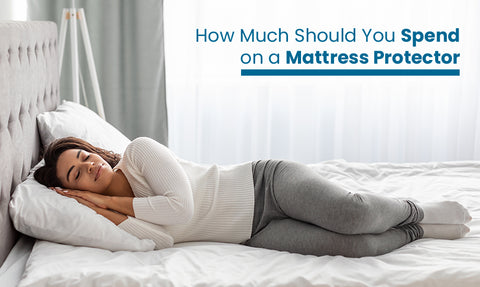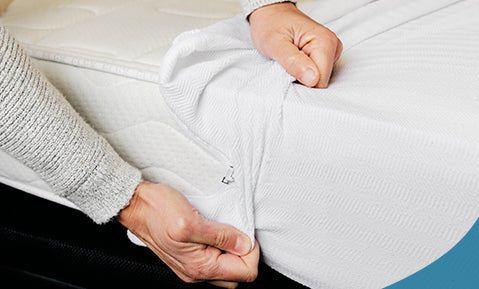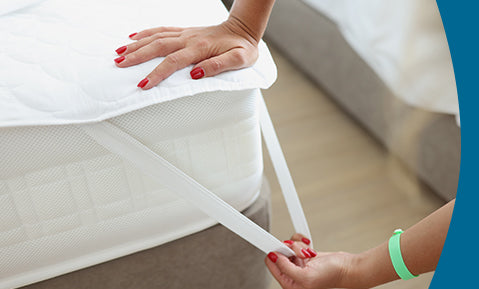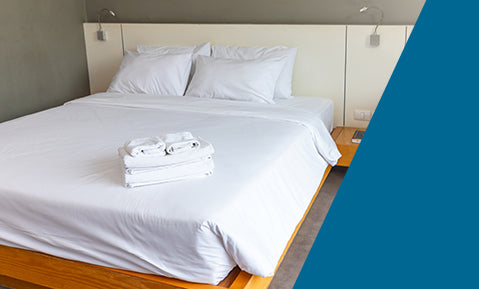
Suppose you have a big event at the office tomorrow and you have to give a big speech about that. Often you will find that the night before such events, you feel restless, tensed, nervous, breathe rapidly, sweat or even tremble. All of these could be symptoms of anxiety and might keep you awake the entire night. Without proper sleep, you might feel drowsy or tired, therefore, the day could get ruined.
So, without further ado, continue reading about the few things you can do when anxiety strikes and you can’t sleep.
What is Anxiety?
Anxiety is the natural way your body reacts to stress. While having anxiety, you might experience a feeling of fear or uneasiness thinking about what will come. According to the American Psychological Association, the definition of anxiety is an emotion that is often followed by feelings of worry and nervousness. Anxiety is also said to affect one physically, that is, it brings a change in blood pressure.
What are the Types of Anxiety?
The different types of anxiety that you might suffer from include–
Panic Disorder: When you suffer from a panic attack you might experience a feeling of intense fear that results in you having chest pain or sweating. You might also experience heart palpitations, a feeling of heart attack or choking.
Social Anxiety Disorder: This happens when you feel excessively worried and self-conscious about daily life situations. Also known as social phobia, this gives you an experience of worrying about what others might think about you or judge you.
Agoraphobia: This is a type of anxiety you experience when you are present in a place from where it seems impossible to escape in case of an emergency. For example, riding on crowded public transportation, an aeroplane or even an elevator.
Generalised Anxiety Disorder: This is a type of anxiety where you might feel extremely worried or tensed for something for no reason.
Separation Anxiety: if you suffer from separation anxiety, you might feel very fearful or anxious when someone you love leaves your sight. You get a constant feeling of worry that something might happen to your near one. So, not only do little kids feel worried when one leaves but even grown adults can.
What are the Causes of Anxiety?
The reasons why one gets anxious are unknown. However, a few possible causes include the–
- Family History: You have a higher chance of having anxiety if someone from your family has it as well.
- Environmental Factors: These include stressful events like family problems, difficulty at the workplace and problems in a relationship.
- Brain Chemistry: Several psychologists also suggest that anxiety disorders are a result of misalignments of electrical signals and hormones in the brain.
- Medical Reasons: This includes stress from a prolonged recovery or undergoing intensive surgery. It might also include side effects of medication or symptoms of another disease.
What are the Things to Do When Anxiety Strikes and you Can't Sleep?
Here is a list of things that you can try doing when you are unable to sleep due to anxiety.
- Prepare a To-Do List
According to a study in the Journal of Experimental Psychology, if you worry about your incomplete tasks for the future, it can cause you insomnia. So, a good way to beat this is to prepare a to-do list of future accomplishments, according to the same study. The more details you put into the list; the sooner you might fall asleep.
- Try Reading a Book
Reading a book can be a perfect substitute for using a digital screen because, according to the Centers for Disease Control and Prevention (CDC), the blue light they emit can further impair sleep.
Johns Hopkins Medicine advises reading in bed for no more than 20 minutes at a time. After that, if you're still awake, get out of bed and continue reading elsewhere until you feel sleepy.
- Listen to Soothing Sounds
The busy city life and the noise related to it can make it even more difficult for you to sleep. Thus, a good idea would be to listen to some soothing sounds which are easily available on YouTube or any other social media platform. This would calm your mind and help you relax and thereby fall asleep quicker.
- Switch on a Podcast
If you don't want to use light or strain your eyes, listening to podcasts or audiobooks can be a wonderful substitute for it.
However, the same guidelines that apply to books also apply to podcasts and audiobooks. Choose a topic that isn't overly thrilling or disturbing. For example, any murder mysteries or heated political debates. If you don't fall asleep in bed soon, be sure to get out of bed and listen somewhere else.
- Consider Eating a Light-weight Snack
Before going to bed keep in mind to avoid certain meals. For example, avoid processed cheese, salami, and pepperoni as they contain norepinephrine, a hormone that activates the brain. Furthermore, according to Johns Hopkins Medicine, eating a lot of protein-rich foods can interfere with your sleep and slow down digestion.
However, eating a modest portion of popcorn or whole-grain crackers as a light snack when you can't sleep may be beneficial since it releases serotonin, a sleep hormone, in your brain, according to Johns Hopkins Medicine.
Having a light snack if it has been several hours since your last meal may also help you to forget about your empty stomach.
- Pay Attention to Your Breathing
According to a 2018 review published in Frontiers in Human Neuroscience, deep, slow breathing can also lower your heart rate, which might be beneficial if you're concerned or stressed about a particular situation.
An exercise that can help you beat the anxiety while falling asleep is- putting one hand on your stomach and one on your chest. Push softly on your abdomen as you slowly exhale after taking a two-second-deep breath through your nose. Repeat this exercise till your anxiety is calmed.
Now that you know what are the things you can try to fall asleep while anxiety hits you, you must also remember a few other things. You must not force your body to sleep if it is not willing to. Since everyone is different, the sleep requirements for everyone are different too. While some people's bodies demand eight to nine hours of sleep, some bodies might function well with six or seven.
Tips to Improve Sleep Hygiene
Many individuals with anxiety problems have difficulty falling asleep. Lack of sleep has an impact on mood, which can lead to irritability and occasionally sadness. During various stages of sleep, vital processes take place that either leave you feeling refreshed and energized or aid in memory formation and learning. When an anxiety problem is addressed, sleep typically becomes better. These are some tips listed below that can improve the quality of your sleep.
- Try to spend 30 minutes each day outside during the day to aid with sleep habits.
- Try to perform regular exercise but not too close to bedtime. A workout in the afternoon is great.
- Avoid naps after 3 o'clock in the afternoon and keep them for less than an hour.
- Avoid caffeine, which can take up to eight hours to wear off and is present in coffee, many teas, chocolate, and many soft drinks. If you experience panic attacks, you might need to completely avoid caffeine because many people who suffer from panic attacks are extremely sensitive to it.
- You can try investing in a good pillow and mattress to help you feel comfortable and relaxed while sleeping. Remember, that maintaining a good posture while sleeping is equally important. (CTA)
- To determine whether you are taking any stimulants, which are frequently to blame for keeping people up at night, go over your drug list with a doctor. It is occasionally feasible to change medications.
- Before going to bed, refrain from drinking a lot of liquids, eating a lot of food that causes heartburn, or drinking alcohol.
- Quit smoking if you do. Smoking has a number of negative health effects, some of which might interfere with sleep.
- Avoid distractions like a TV or computer in your bedroom by keeping it cold, dark, and silent. Avoid reading in bed while using an electronic device since the light from the screen can make your brain believe it is daytime.
- Replace your uncomfortable mattress right away.
- Get out of bed and do something soothing till you feel tired if you can't fall asleep 20 minutes after turning in. You can also do it if you wake up and can't get back to sleep for 20 minutes.
Therefore, that is all about the things to try when you cannot sleep due to anxiety. It is normal to feel anxious before a big event in life, or when something unusual happens. However, if you find the symptoms of anxiety lasting more than 6 months, or your anxiety is more than normal, you should consult a doctor.












